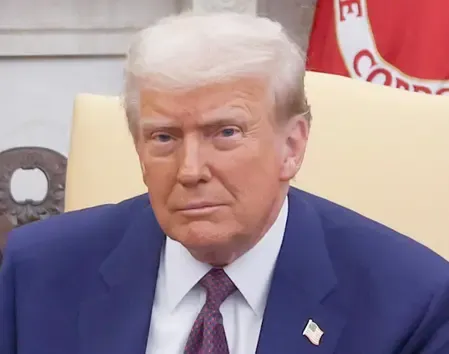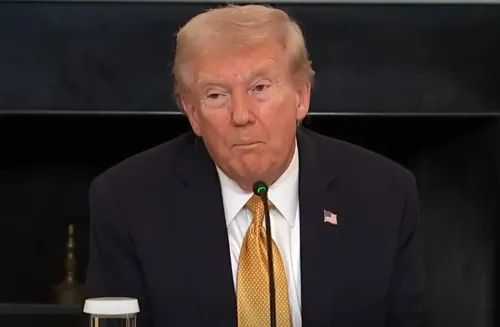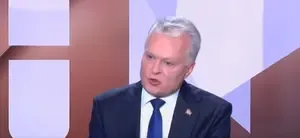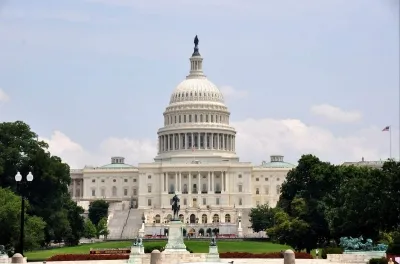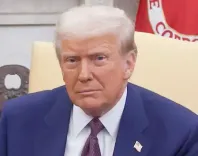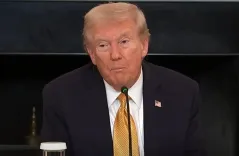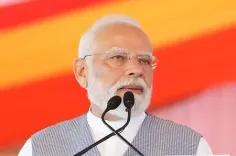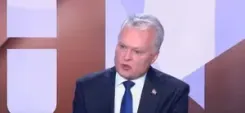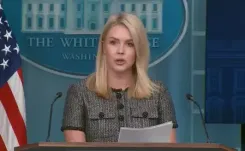Are US Sanctions Against Russia Considered 'Pretty Hefty'?
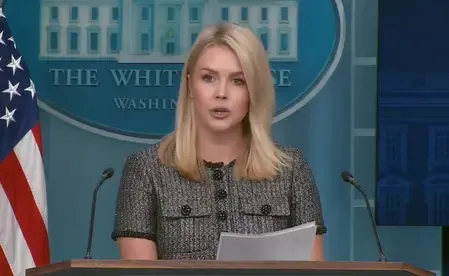
Synopsis
Key Takeaways
- New sanctions against Russia impose significant pressure on Moscow.
- Trump cites lack of interest from Russia as reason for canceling meeting with Putin.
- China and India are reportedly reducing oil purchases from Russia.
- Further sanctions remain a possibility, depending on future developments.
- EU aligns with the U.S. in imposing financial penalties against Russia.
Washington, Oct 24 (NationPress) A fresh wave of sanctions targeting Russia is set to exert substantial pressure on Moscow, according to the White House. This indicates that US President Donald Trump might consider intensifying these measures.
During a briefing on Thursday, Press Secretary Karoline Leavitt remarked, "If you analyze the sanctions, they are quite severe," referencing reports that China and India--the two largest purchasers of Russian oil--are reducing their imports.
"It's a full court press for sure, and we anticipate these sanctions will inflict damage," she continued.
On Wednesday, the Trump administration enacted sanctions on Russia's two biggest oil firms while urging Moscow to agree to an immediate ceasefire in Ukraine.
When asked about the possibility of further sanctions, Leavitt indicated that the decision rests with the President.
"That decision is up to President Trump," she stated.
Leavitt informed CNN on Thursday that President Trump opted to unveil new sanctions against Russia and cancel a scheduled meeting with Russian President Vladimir Putin as he had "not observed sufficient interest" from the Russian side in "progressing towards peace".
"The President has consistently stated he would impose sanctions on Russia when deemed necessary, and yesterday was that moment," she shared with CNN.
"The President has also articulated his frustration with Vladimir Putin and, frankly, both factions in this conflict. He has always maintained that both parties need to be interested in reaching a good peace agreement to negotiate effectively," Leavitt remarked.
Speaking to reporters at the White House on Wednesday, Trump confirmed he had "canceled" the meeting with Putin, noting, "It didn't seem like we were on track to reach the necessary agreement--so I canceled it, but we'll revisit it in the future."
Leavitt added on Thursday, "So, a meeting between these two leaders is not entirely off the table. The President and the entire administration hope that one day it can happen again--but we want to ensure that a tangible, positive outcome arises from that meeting and that it's a worthwhile use of the President's time."
When pressed about whether the cancellation followed a call between US Secretary of State Marco Rubio and Russian Foreign Minister Sergey Lavrov, which highlighted "divergent expectations" between the two leaders, Leavitt clarified that other factors were involved.
"That was not the sole reason, no," she responded to CNN.
"I believe Secretary Rubio found that call to be productive, but again, the President wants to ensure that a meeting with President Putin will be a beneficial use of time at this moment," she added.
Earlier on Thursday, the European Union announced a 19th round of sanctions against Russia, targeting sectors such as energy, finance, and military.
The bloc aligns with US President Trump in its financial penalties against Moscow.

